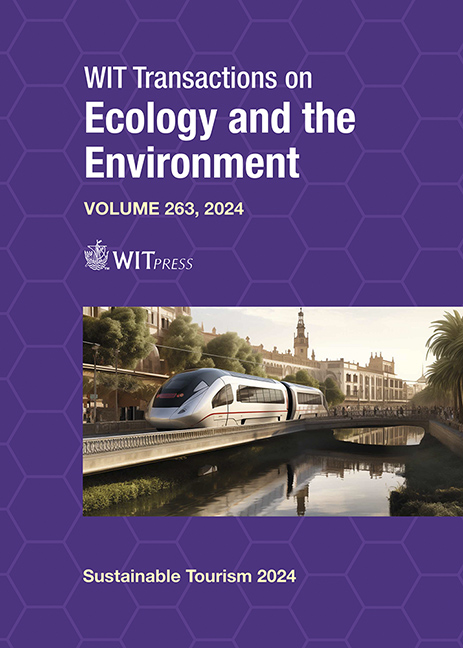THE PLACE OF TOURISM IN THE IMPLEMENTATION OF THE SUSTAINABLE DEVELOPMENT GOALS AT NATIONAL LEVEL
Price
Free (open access)
Transaction
Volume
263
Pages
9
Page Range
13 - 21
Published
2024
Paper DOI
10.2495/ST240021
Copyright
Author(s)
GIULIO PATTANARO
Abstract
Tourism can play a significant role in achieving the objectives of the United Nations’ 2030 Agenda for Sustainable Development (UN Agenda 2030) and its 17 Sustainable Development Goals (SDGs). Tourism has been explicitly mentioned in only three out of the 17 SDGs: SDG 8 (promoting decent work and economic growth), SDG 12 (promoting responsible consumption and production) and SDG 14 (protecting marine resources). However, as the United Nations World Tourism Organization and the United Nations Development Programme underline, tourism has the potential to contribute, directly or indirectly, to all 17 SDGs. In the context of the annual United Nations High-Level Political Forum on Sustainable Development, on a voluntary basis the Member States of the United Nations (UN Member States) have carried Voluntary National Reviews (VNRs) of their progress in the implementation of the UN Agenda 2030 and of its 17 SDGs. The present paper explores the place currently dedicated to tourism in the most recent VNRs, identifying the SDGs that UN Member States most frequently associate to tourism. A review of the most relevant literature on the relation between SDGs and tourism is followed by the analysis of the VNRs which were submitted by 38 UN Member States in 2023, as well as of the VNRs submitted by the same UN Member States in the previous years. The results show a growing relevance of tourism in the implementation of the SDGs at national level; it also emerges that promoting decent work and economic growth as well as responsible consumption and production are considered by the UN Member States as crucial policy areas and actions to boost the development of sustainable tourism in their territory. Further research also looking at the VNRs which will be submitted in the coming years is finally recommended.
Keywords
SDGs, sustainable tourism, Agenda 2030





